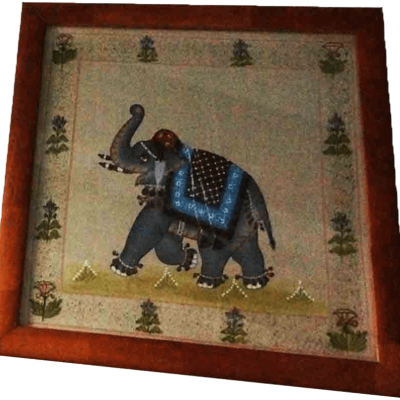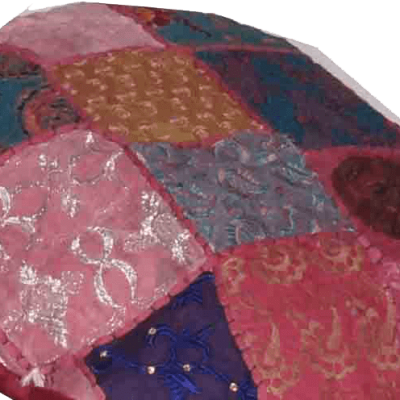Abstract
There was research that is limited the original Hispanic male and feminine sex roles of machismo and marianismo, correspondingly, with regards to negative cognitions and feelings. Because of the vulnerability of Hispanics to negative cognitions and feelings, it is essential to examine sociocultural correlates of psychological stress. Consequently, we examined associations of machismo and marianismo with negative cognitive-emotional factors (i.e., depression signs; cynical hostility; and trait anxiety and anger) within the Hispanic Community wellness Study/Study of Latinos Sociocultural Ancillary research, a cross-sectional cohort research of sociocultural and psychosocial correlates of cardiometabolic wellness. Individuals had been aged 18–74 years and self-identified as Hispanic of Central United states, Cuban, Dominican, Mexican, Puerto Rican, Southern United states, as well as other Hispanic history (N = 4,426). Outcomes revealed that certain the different parts of machismo (conventional machismo) and marianismo (family members and religious pillar measurements) were connected with higher quantities of negative cognitions and feelings after adjusting for socio-demographic facets (p keyword phrases: sex roles, machismo, marianismo, negative cognitions/emotions
Negative cognitive-emotional facets such as for instance despair, anxiety, anger, and hostility that is cynical adversely impact cardiometabolic wellness (Chida & Steptoe, 2009; minimal, Thurston, & Matthews, 2010; Raikkonen, Matthews, & Kuller, 2002; Watkins et al., 2013). Cardiometabolic health relates to an individual’s risk that is overall developing diabetic issues and cardiovascular disease (United states Diabetes Association, 2006). Negative cognitions and feelings were related to dangerous wellness habits as they are usually comorbid with chronic disease, such as for instance heart problems, diabetic issues, and cancer (Chapman, Perry, & Strine, 2005). Likewise, clinical psychological problems characterized by negative affect particularly despair and anxiety have now been related to significant infection burden and impairment; major despression symptoms would be the leading reason behind impairment in the usa (U.S.) for people aged 15 to 44 years (World wellness Organization, 2008).
The sociocultural scripts of male and female sex part socialization in Hispanics countries are known correspondingly as machismo and marianismo. The construct of machismo describes thinking and objectives concerning the part of males in culture; it really is a collection of values, attitudes, and values about masculinity, or exactly what it’s become a person. Machismo encompasses negative and positive facets of masculinity, including bravery, honor, dominance, aggression, sexism, sexual prowess, and reserved thoughts, amongst others (MirandГ©, 1977; Niemann, 2004). Machismo also contains attitudinal philosophy that ponder over it suitable for ladies to stay in old-fashioned functions, and thus encourages dominance that is male ladies. You will need to observe that a tiny but growing human body of literary works ( ag e.g., Arciniega, Anderson, Tovar-Blank, & Tracey, 2008) is getting off the rigid depiction of machismo described as hypermasculity (referred to as conventional machismo) and it is encompassing a confident image of male sex role traits, such as for instance chivalry, bravery, and family members provider characteristics (referred to as caballerismo). Analysis additionally implies that machismo might be impacted by socio-demographic factors, such as for instance acculturation; that is, the recommendation of machismo is greater among people with reduced U.S. acculturation (Ojeda, Rosales, & Good, 2008). In research gender that is examining in reference to negative cognitive-emotional facets, endorsement of old-fashioned male sex part opinions is related to harmful psychological wellness results, such as for instance greater despair, anxiety, and anger (Fragoso & Kashubeck, 2000; Good & Wood, 1995; Kopper & Epperson, 1996; Syzdek & Addis, 2010; large, Mok, McKenna, & Ogrodniczuk 2011). However, most of the literature that is existing male sex functions happens to be acquired from university student and non-Hispanic White samples, and it has not at all times considered social facets of sex functions. Consequently, the association between your construct of machismo with negative cognitive-emotional facets into the larger population that is hispanic including females, continues to be confusing.
Technique
Individuals and Sampling Procedures
Data are based on the Hispanic Community wellness Study/Study of Latinos (HCHS/SOL) Sociocultural Ancillary learn (Gallo & Penedo et al., 2014). The HCHS/SOL is really a population-based, prospective study that is cohort observe chronic condition and associated risk and protective facets among Hispanics of Central United states, Cuban, Dominican, Mexican, Puerto Rican, Southern American, as well as other Hispanic back ground (Lavange et al., 2010; Sorlie et al., 2010). A complete of 16,415 Hispanics aged 18–74 years, had been recruited through the Bronx, NY, Chicago, IL, Miami, FL, and north park, CA, utilizing a probability that is two-stage of home details. Census block teams had been arbitrarily chosen into the defined field site areas with stratification considering Hispanic concentration and status that is socio-economic. Households were arbitrarily chosen in each sampled census block team. Qualified individuals (in other words., Hispanics individuals aged 18 to 74 years) had been chosen in each home and invited to take part. The HCHS/SOL Sociocultural Ancillary learn is just a cross-sectional study that is cohort of and psychosocial correlates of cardiometabolic wellness. The analysis carries a representative sub-sample of this HCHS/SOL cohort apart from reduced involvement in a few higher SES strata (Gallo & Penedo et al., 2014). Individuals who had finished the HCHS/SOL standard exam had been invited to take part in the HCHS/SOL Sociocultural Ancillary research and had been recruited from all the four industry web web internet sites between 2010 and June 2011 (N = 5,312) february. Individuals completed a 1–2 hour interview-administered sociocultural evaluation battery pack. Detailed information sampling that is regarding and procedures for both the HCHS/SOL Sociocultural Ancillary research (Gallo & Penedo et al., 2014) as well as the moms and dad research happens to be formerly posted (Lavange et al., 2010; Sorlie et al., 2010). For both studies, Institutional Review Board approval had been acquired at each participating web web site and all participants offered written consent that is informed.
Measures
Depression
The guts for Epidemiological Studies Depression Scale https://hookupdate.net/equestrian-dating/ (CES-D 10; Andresen, Malmgren, Carter, & Patrick, 1994) is really a commonly utilized measure to display for depression that is formerly validated for use in Latinos (Grzywacz, Hovey, Seligman, Arcury, & Quandt, 2006). The 10-item CES-D measures despair signs throughout the week that is past a 4-point scale from 0 (rarely or none of that time вЂless than the usual day’) to 3 (many or all the time вЂ5–7 days’). Sample products include statements such as for example, “I felt depressed” and “I had difficulty maintaining my mind about what I became doing.” the number of ratings in the CES-D 10 is 0 to 30, with greater scores showing greater despair signs (Cronbach’s alpha coefficients of interior persistence for many study that is major are reported in dining dining Table 1 ).
Dining Dining Table 1
Cronbach’s Alpha Internal Consistency Coefficients for significant learn Measures one of the whole Sample and also by Language Group





